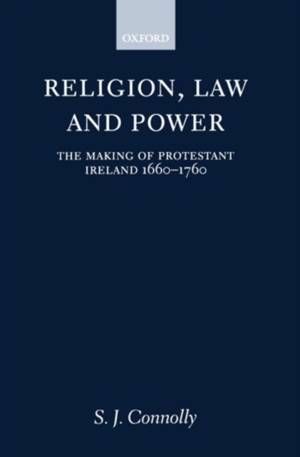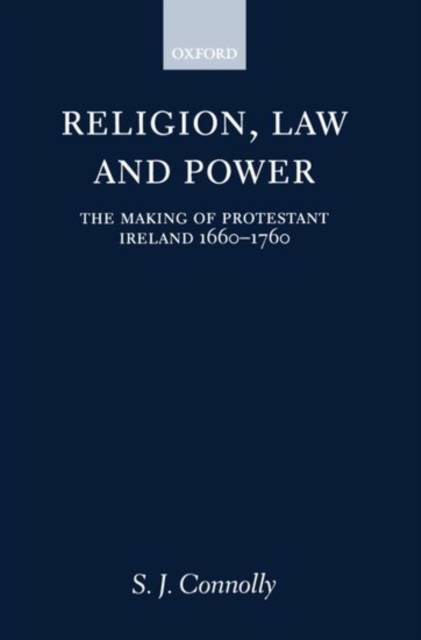
Door een staking bij bpost kan je online bestelling op dit moment iets langer onderweg zijn dan voorzien. Dringend iets nodig? Onze winkels ontvangen jou met open armen!
- Afhalen na 1 uur in een winkel met voorraad
- Gratis thuislevering in België vanaf € 30
- Ruim aanbod met 7 miljoen producten
Door een staking bij bpost kan je online bestelling op dit moment iets langer onderweg zijn dan voorzien. Dringend iets nodig? Onze winkels ontvangen jou met open armen!
- Afhalen na 1 uur in een winkel met voorraad
- Gratis thuislevering in België vanaf € 30
- Ruim aanbod met 7 miljoen producten
Zoeken
€ 98,45
+ 196 punten
Omschrijving
This is a study of religion, politics, and society in a period of great significance in modern Irish history. The late seventeenth and early eighteenth centuries saw the consolidation of the power of the Protestant landed class, the enactment of penal laws against Catholics, and constitutional conflicts that forced Irish Protestants to redefine their ideas of national identity. Connolly's scholarly and wide-ranging study examines these developments and sets them in their historical context. The Ireland that emerges from his lucid and penetrating analysis was essentially a part of ancien regime Europe: a pre-industrial society in which the dominance of a landed elite depended on maintaining the balance between coercion, deference, and an absence of credible pretenders to power; in which the ties of patronage and clientship were often more important than horizontal bonds of shared economic or social position; and in which religion remained a central part of personal and political motivation.
Specificaties
Betrokkenen
- Auteur(s):
- Uitgeverij:
Inhoud
- Aantal bladzijden:
- 358
- Taal:
- Engels
Eigenschappen
- Productcode (EAN):
- 9780198205876
- Verschijningsdatum:
- 23/03/1995
- Uitvoering:
- Paperback
- Formaat:
- Trade paperback (VS)
- Afmetingen:
- 162 mm x 233 mm
- Gewicht:
- 512 g

Alleen bij Standaard Boekhandel
+ 196 punten op je klantenkaart van Standaard Boekhandel
Beoordelingen
We publiceren alleen reviews die voldoen aan de voorwaarden voor reviews. Bekijk onze voorwaarden voor reviews.











